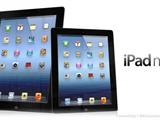Do you agree? The biggest advantage of Apple's iPhone lies in app development.
The well-known American investment website, The Motley Fool, published a commentary titled "Apple's Biggest Advantage in the Smartphone Field Lies in App Development." Below is a summary of the full text:
Google's Android operating system dominates the mobile device market, with statistics showing that nearly 80% of smartphones sold globally are equipped with Android. Microsoft’s Windows Phone is gradually gaining traction, but its market share remains at only 3.7%. Meanwhile, Apple's global market share declined from 16.6% last year to 13.2% this year. Many believe this trend may lead developers to start focusing on the Android platform first, but this may not be the case.
The iPhone sells very well in the United States, a country that is home to many mobile innovation startups. According to the latest report by market research firm Kantar, Apple has a market share of 43.4% in the U.S. Moreover, since the launch of the latest iteration of the iPhone in September, its sales share has doubled compared to the previous month.
In fact, the most popular mobile platform for app developers in the U.S. remains the iPhone. Not only do most apps originate in the U.S., but many app developers focus on the U.S. because iPhone users are willing to spend money on relevant apps. Additionally, not only are consumers willing to spend money, advertisers are also willing to pay more for apps to attract consumer attention.
Although most smartphone owners in the U.S. have an Android phone, this does not mean that developers will prioritize the Android platform. The Android market is relatively fragmented, and the Windows Phone market is too small in some respects. There is only one iOS phone.
It is reported that the cost of developing iOS apps is much lower than that of Android apps. The main reason for the high cost of Android app development comes from brand fragmentation and a multitude of models, which makes it problematic whether the app can run smoothly and ensure quality, whereas iOS app developers do not need to worry about this issue. More importantly, developers consider potential returns on investment when developing apps. Even if the development costs for iOS, Android, or Windows Phone platforms are the same, most app developers may still choose the former.
American iPhone users represent the cream of the crop among smartphone users. Although Android users have a numerical advantage, for app developers, the overall value of the former far exceeds the latter. The amount of funding flowing into iOS apps significantly surpasses that of Android apps.
According to a recent study by ad platform Nanigans, Facebook’s ads on the iOS platform brought about a 6.1 times increase in revenue, making its profit 17.9 times that of the Android platform. Therefore, the cost-per-click rate for Android is about half that of iOS, and as the return on investment for ads on the Android platform becomes negative, this gap will widen. That is to say, each download of an iOS app brings twice the revenue for its developer compared to an Android app, while for advertisers, it is 17.9 times. Therefore, even though the app download rate of Google Play Store exceeded that of Apple iTunes by 10% in the second quarter of this year, the revenue of the latter still exceeded the former by 1.3 times.
It takes app developers around one to 18 months to develop and launch a new app for a new platform. For example, the photo-sharing app Instagram took about 18 months to develop and launch on the Android platform, and another 18 months to launch the Windows Phone version. Unless Microsoft can stimulate developers to create apps for its mobile platform, its app ecosystem will likely lag behind Apple by two to three years. However, without the latest apps, it will be difficult to expand the market share of Windows Phone, creating a vicious cycle. Apple's advantage in app development remains unmatched.
Most of Apple's short-sellers focus on the decline in its market share, but it should be noted that hardware is only half of the success. Apple's advantage in the app ecosystem will ensure that the company maintains a strong market share in its most profitable markets.
Additionally, iPhone users are generally willing to spend more on apps, so every phone sold generates more revenue for Apple. This is Apple's biggest advantage in the smartphone field, and this advantage will not disappear anytime soon.



